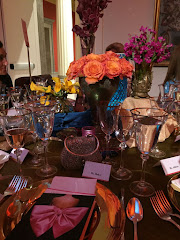- Arab is not an ethnicity.
- Arabs represent approximately 18% of Muslims, but their language, culture and religion permeate the Islamic world.
- The Koran was delivered to Muhammad in Arabic, so speaking Arabic is a foundation and plays a central role in the practice of Islam.
- Ethnic Arabs originate from the Arabian Gulf region, but the spread of Islam and the Islamic Empire absorbed a host of other ethnic groups.
- Some of the countries considered to be "Arab" countries are: Algeria, Libya, Egypt, Sudan, Morocco, Tunisia, Saudi Arabia, Yeman, Syria, Iraq, Oman, Somalia, Jordan, Western Samara and Mauritania.
- The Islamic religion is the fastest growing religion in the world: 1-1.4 billion believers which is 20% of the world population. There are 6 million believers in the USA.
- 90% of the Middle East is Muslim (65% Sunni, 29% Shi'a)
The foundations of Islam include the Five Pillars:
- Shahada, or Profession of Faith
- Salat, or Prayers
- Zakat, or Alms Giving
- Sawm, orFasting
- Hajj, or Pilgramage
Muslims are required to donate 2.5% of their income to the homeless. Also, as a kindness, bring them into their homes for a meal without reservation. There are NO orphanages because the giving capacity of the communities is so very great and the important family structure does not warrant orphanages.
The one thing in common with Islam, Christianity and Judaism is the Universal God. Other similarities with Christianity and Judaism are:
- Oneness of God
- Prophets and Divine Revelation
- Angels
- Satan
- Moral responsibility and accountability
- Judgement Day
- Eternal reward or Punishment
- Covenant with God
- Peace, love and charity
Family is the foundation of Arab society. Extended family is treasured as the obligation for their care runs very deep. Arabs have a keen sense of social rank and clan identity. Familial bonds are much closer, deeper and larger than in typical Western families. Business meetings very often happen in the home surrounded by extended family centered around a large, long meal.
This information was from a seminar I attended at The Protocol School of Washington. This session was taught by Cynthia Rambo, Chief of Protocol , Shaw Airforce Base. Enjoy these tips!









